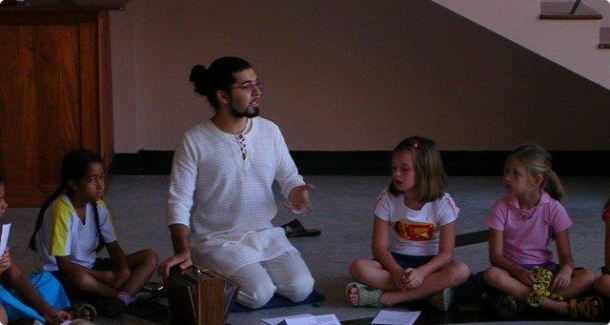10 Tips for Job Hunting Teachers
Are you ready to take the next step in your overseas teaching career? Here's TIC Director Andrew Wigford's top tips for becoming the perfect candidate to vacancies.

1. Get yourself fully prepared before you start job-hunting: get your CV updated, a portfolio of your work compiled, and your references (other than your current employer) agreed.
2. Make sure your CV is easy to read and understand, and 100% accurate in detail and content.
3. Don’t forget to share details of the extra curricular skills you can offer, or list the extra curricular activities you have organised or supported.
4. Teaching English as an Additional or Second Language (EASL) is now highly valued by many schools and you should include this skill on your CV if you have good experience.
5. Remember, it’s as much about your personality and a positive, can-do attitude, as it is about your teaching experience. Try to demonstrate this in your communication and during your interview.
6. Show that you are a learning-focused teacher - Many Headteachers and school recruiters will be looking for evidence of your focus on learning (rather than simply your teaching skills – yes, there is a big difference between the two), so compile a portfolio featuring a range of learning-focused activities, displays, assemblies, etc. to show that you understand what being learning-focused means.
7. Don’t limit your job hunting to your immediate vicinity (unless you have particular reasons for remaining local) or even your country. There are over 7,000 international schools located all over the world that use English as the language of learning and almost half of these follow the National Curriculum of England.
8. Don’t be just another CV or job application arriving into a Headteacher’s inbox or onto the desk. Select a specialised recruitment agency instead that will give you personalised and expert support to help you find the right jobs with your skills, experience and destination preferences in mind. If your qualifications and experience are particularly good, a recruiter may even be able to recommend you as a good candidate to the schools it works closely with.
9. Get planning! If you want to apply to international schools, most jobs are advertised between January and March with many interviews happening in February and March. If you want to find a job in your home country, be absolutely ready so that when applications open you are ready to go!
10. Complete all application requests accurately and as soon as you can. Respond quickly to all communication and qualification and child protection requests.
And one extra and important tip when applying for teaching jobs: Don’t send ‘blanket’ applications to lots of different schools. Headteachers and recruiters will spot these easily and this approach suggests that they’re just one of many schools you are applying to. Pick the schools you want to work with, do your homework on each school, explain in your cover letter what it is about the school that makes you want to work with them. Make it personal!
If you would like to find out more about finding the best internatioanl teaching positions, read our weekly blog and regularly check our vacancies page.
You may also be interested in these informative blogs:
TIC App helps job-hunting teachers stay a step ahead
TIC Newsletter 2014
International student teacher internship programme launches with success for all
 Andrew is Managing Director of TIC. He has been involved in international education both as a teacher and Headteacher for over 25 years and has worked in Germany, Colombia and Austria. He set up TIC recruitment in 2005 to help teachers find great jobs in great international schools.
Andrew is Managing Director of TIC. He has been involved in international education both as a teacher and Headteacher for over 25 years and has worked in Germany, Colombia and Austria. He set up TIC recruitment in 2005 to help teachers find great jobs in great international schools. Head of Department - Physical Education
Head of Department - Physical Education Design Technology Teacher
Design Technology Teacher Business & Economics Teacher
Business & Economics Teacher Whole School Counsellor
Whole School Counsellor iGCSE / IBDP English Teacher
iGCSE / IBDP English Teacher